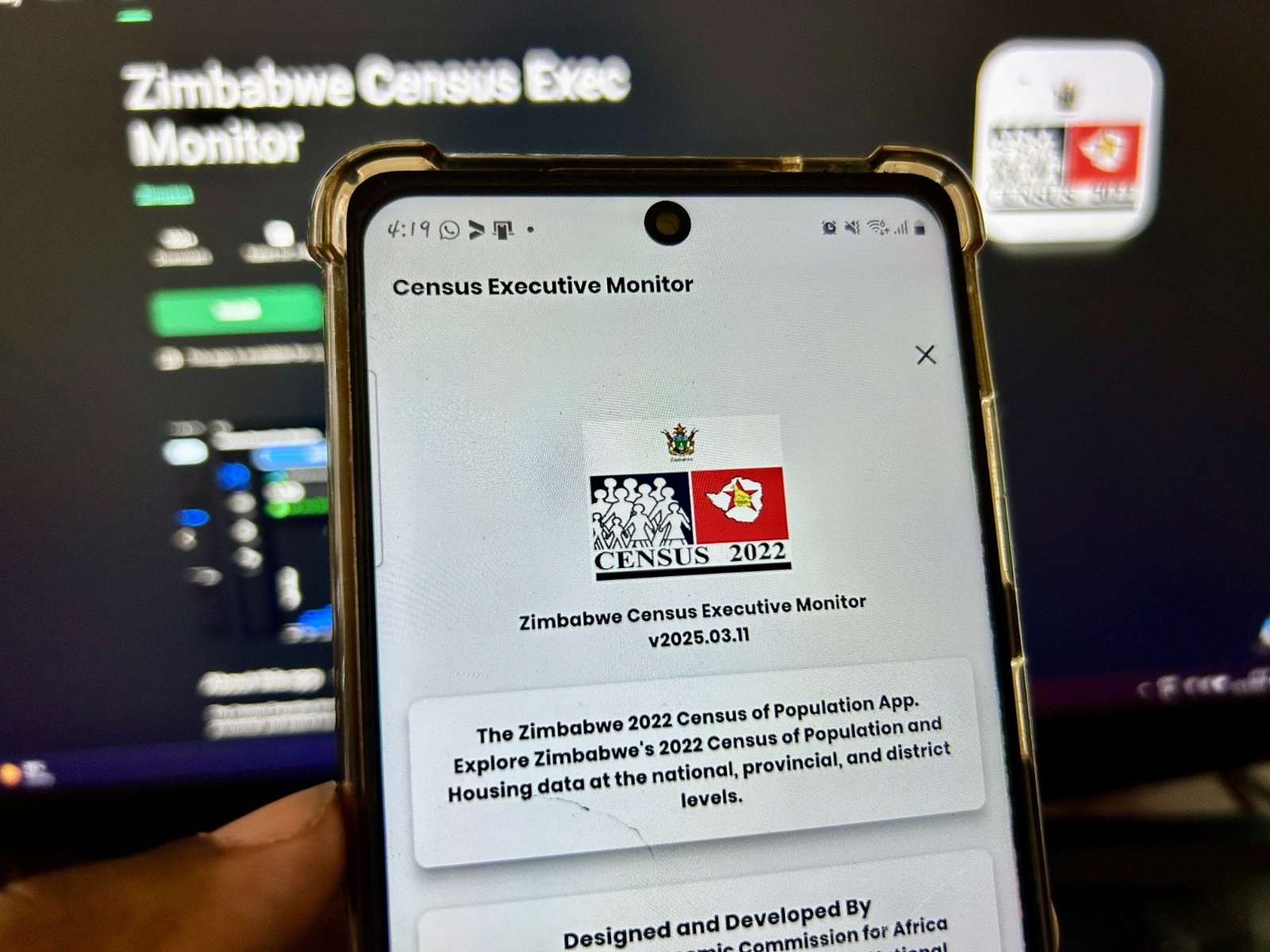Day 1 of the Computer Society of Zimbabwe’s Summit (CSZSummit2024) came and went, and it was a packed day.
If you follow our social media accounts, you already know the day’s highlights, as we posted regular updates there. For everyone else, here’s a recap of what transpired.
The day kicked off with welcome remarks from the Summit convenor and CSZ President.
4IR
The first keynote was on the Fourth Industrial Revolution (4IR), delivered by Clarence Gama, President of the ICT Association of Malawi. He discussed harnessing 4IR technology for sustainable development.
If you’re not familiar with 4IR tech, he focused on four areas: Artificial Intelligence (AI), Blockchain, Robotics, and the Internet of Things (IoT). He explained how these technologies align with the UN’s Sustainable Development Goals (SDGs), particularly by enhancing resource efficiency, economic growth, and job creation.
One of the most interesting parts was hearing about real-world applications. For example, Gama detailed how AI is boosting productivity, efficiency, and resilience in agriculture. In Kenya, AI-powered precision farming tools provide smallholder farmers with actionable insights.
Gama also explored applications and case studies for the other key 4IR technologies.
Digital Transformation
Following that, a panel discussed 4IR, focusing on digital transformation strategies for Zimbabwean businesses. Panelists included:
- Tawanda Tagwireyi, Chief Director – eGovernment, Office of the President &
Cabinet - Tatenda Tsikira – Head – Digital Transformation, AFC Commercial Bank
- Takudzwa Muradzi – Corporate Sales Manager, Dandemutande
- Maria Chinomwe – General Manager Technology Services
Which meant it was not just strategies for private businesses, but for the government too. Let’s be honest, as skeptical as many are of most Zimbabwean businesses actually implementing digital transformation right, it’s magnitudes worse when it comes to the government – expectations are as low as they can get.
So, it was interesting to hear some of the work the government is doing on that front. Of course, some questioned the wisdom in consulting other countries on some of these matters.
It raised the classic dilemna: ‘Do you try to create a bespoke system and risk not getting anywhere with it as you try to recreate the wheel? Or do you take someone’s bespoke solutions and try to fit them in your differently shaped hole?’ It’s all about balance, I guess.
Tech in property
Ken Sharpe, CEO of Westprop Holdings, joked about how odd it felt for a property executive to present tech to an audience of tech enthusiasts. His talk demonstrated that digital transformation can improve efficiency, reduce costs, and enhance customer experiences in any field.
Internet of Things (IoT)
The buzzword IoT has been overshadowed by AI recently, but it was revisited here in a panel titled “Smart Zimbabwe: The Role of IoT in Building a Connected Future,” featuring:
- Nathan Kupamupindi – Ministry of Information Communication Technology, Postal & Courier Services
- William Mugobogobo – Head of ICT Infrastructure & Security, City of Harare
- Godknows Mombeshora – Acting General Manager, Enterprise Business, Econet Wireless
- Audrey Chidawanyika – Global Educator on Innovation, Skills, and Enterprise Development
Apart from the surprise many felt upon learning that Harare has an ICT Infrastructure and Security Department, there was a joke from the MC about Kupamupindi not taking questions on WhatsApp admin issues. Overall, the session didn’t offer groundbreaking insights but did emphasize the practical, quiet progress IoT is making in areas like monitoring and data collection.
I believe it was Mombeshora of Econet who spoke about some of the practical use cases we are seeing today. I mean, your imagination is the limit when traditionally “dumb” items around us can collect data about our environments.
His example of how fitness-tracker-like devices strapped onto miners’ hands could help monitor vitals and send help the moment they observe anomalies is a good one. When you’re kilometers underground, mere meters away from Hades, you would appreciate a little band on your hand holding the power to fetch help should you need it.
Blockchain
Blockchain technology, like IoT, once received a lot of hype but is rarely discussed with the same excitement these days. Nonetheless, we were reminded of its promise as a trustless, transparent, immutable, and decentralized system. Yet, the session highlighted that many still conflate blockchain with cryptocurrency and Bitcoin.
One panelist mentioned the significant returns early crypto investors saw, which might have unintentionally reinforced this association between blockchain and crypto.
Rekai Katerere from the Reserve Bank of Zimbabwe addressed the regulation of blockchain technology, stressing the need to balance user protection and system integrity with enough flexibility to foster innovation.
Panelists included:
- William Chui – Cryptocurrency Expert
- Rekai Katerere – Senior Economist, Economic Research, Modelling & Policy Division, Reserve Bank of Zimbabwe
- Dr. Solomon Guramatunhu – Eye Specialist & Crypto Enthusiast
- Vusi Ndebele – CEO, Paynow Zimbabwe
AI
I know, you’re sick of AI. So, I won’t be going into the potential of AI. We have talked about that ad nauseam. AI has naysayers and evangelists who are prone to exaggerate, so it can be difficult to ascertain just what to expect with this tech.
So, I’ll just talk briefly about two real-world use cases that were presented.
Econet talked about their internal chatbot called Sizani, which apparently has led to some impressive efficiencies. They gave an example of how it would take their HR department up to 48-72 hours to process Confirmation of Employment requests. However, with Sizani, they say the same document can be processed in under 5 minutes. That’s orders of magnitude better.
Oracle demoed their AI model, which is supposed to help analyze databases on premises. Rather than have ChatGPT dig into your sensitive data to help you analyze it, you could run Oracle’s solution and get similar results but with the confidence that none of your data was sent elsewhere for processing and analysis.
Like I said, very few are still excited to hear about the promises of AI. Most just want to see practical applications like these. That doesn’t mean the keynotes and panel discussions about AI weren’t interesting—they were.
Here’s who spoke on AI:
- Learnmore Masanga (General Manager – Artificial Intelligence, Econet Wireless) gave a keynote address on ‘AI and Machine Learning: Beyond the Hype’
- Vishal Soockeea – Country Director Mauritius, Oracle talked about ‘Building the Foundation for AI’, a case of Oracle
- A panel that included the two above and Dean Fungai Mukora – Dean in the Faculty of Computer Engineering Informatics, University of Zimbabwe talked about ‘AI in Action – Practical Applications for Business’.
That was it. Can’t wait for Day 2. We’ll keep you posted.














Comments
5 responses
Yeah, I wonder when people work. Every week there is a conference. 95% will be from Harare but will fly to Vic Falls to speak about things almost everyone knows. I mean we have a conference EVERY WEEK! Our ICT minister is always reading a speech twice a week. Those who know her will testify that she is hardly in her office, always globe trotting, reading speeches and not signing important things
To hell with these conferences; let’s do some work and stop this nonsense of meeting up every week to talk about things we can all google and find answers to
hahaha true 100%
Iwe Dzidzai, OUT!OUT!OUUTTT!!!!!
These are the same suits that are failing to deliver affordable data to the market. Welcome no one is talking about leveraging AI and machine learning, for the provision of affordable broadband ? Is this not a problem that deserves their attention?
Aiis a hoax like COVID 19